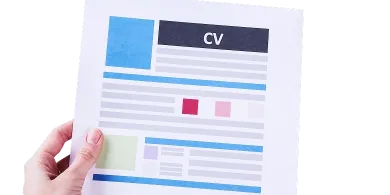Table of contents
If you want your nursing resume to grab attention fast, knowing how to write a professional summary for nursing resume is only part of the puzzle. The other piece is making sure the skills on your resume tell a story employers can’t ignore.
Nursing is growing at a steady pace. The U.S. Bureau of Labor Statistics reports that jobs for registered nurses will rise by 6% between 2023 and 2033, adding nearly 194,500 openings every year. You can see the data here.
As Cameron B., a nurse recruiter at AMN Healthcare, puts it:
“A resume needs to be a brag about why you’re the best and why they should choose you. Focus on using specific terms, including action words that really reflect your experience and skills.”
In this guide from experts at our online resume writing services, you’ll learn exactly which skills employers want to know about when they look at your resume. We’ll break down the must-have clinical skills, the tech tools you should highlight, and the soft skills that show you’re ready to care for patients and work with a team.

Source: https://www.pexels.com/uk-ua/photo/7659565/
When you’re applying for a nursing role, the skills you share can make your resume stand out or sink to the bottom of the pile.
Hiring managers and recruiters want proof that you can handle the real challenges of patient care. They look for specific skills that match the job description, like patient assessment, medication administration, or using electronic records. If you omit these skills, you’re forfeiting a significant opportunity to demonstrate your qualifications.
Most employers don’t read every resume word for word. Instead, many use software called Applicant Tracking Systems (ATS). These programs scan your resume for keywords linked to the role. If you don’t include the terms they expect, your application may never reach a real person.
Research shows that about 65% of healthcare recruiters rely on ATS to sort applications before interviews even start. That’s why you need to list your skills clearly and use language pulled right from the job posting.

Including a detailed expertise section improves your visibility. It shows you’re highlighting the abilities that matter most to employers. When you customize this part of your resume, you show you know what the job entails and are ready to do it well.
When you write a summary for nursing resume, you’re setting the tone for everything that follows, including your skills. Employers want to see exactly which hard skills you’ve learned through training and practice.
If you have a Bachelor of Science in Nursing or other formal nursing education, you’ve likely spent plenty of time developing these essential clinical abilities:
This is at the heart of nursing. It means helping with daily tasks like feeding, bathing, and mobility, plus keeping a close eye on changes in health.
Every nurse needs to prepare and give medications safely. This involves understanding dosages, checking patient records, and watching for side effects.
Managing IV lines and fluids is a skill many employers look for, especially in hospitals or urgent care settings.
From surgical sites to chronic wounds, nurses assess and dress wounds to keep them clean and healing.
Tracking blood pressure, pulse, and temperature gives care teams the information they need to act fast.
Core Clinical Skills
| Skill | Description |
| Patient Care | Helping with daily needs and monitoring health. |
| Medication Administration | Giving medications safely and accurately. |
| IV Therapy | Managing intravenous treatments and equipment. |
| Wound Care | Assessing, cleaning, and dressing wounds. |
| Vital Signs Monitoring | Recording and evaluating key health indicators. |
Tip: How to Match Skills to the Job Description
✅ Look for repeated phrases in the posting (like “vital signs monitoring” or “IV therapy”).
✅ Use those exact terms in your skills list.
✅ If you completed special training, mention it next to the skill.
✅ Show where you learned each skill, such as during your Bachelor of Science in Nursing program.
Your nursing education doesn’t stop at patient care, skills also include learning how to use technology. Today’s nurses need to feel comfortable with electronic records, telehealth tools, and a range of digital systems.
Almost every healthcare employer uses EMRs to track patient data. Knowing systems like Epic or Cerner proves you’re ready to hit the ground running.
Virtual care has become a big part of nursing. If you’ve helped patients over video or used remote monitoring tools, list that experience.
From IV pumps to ventilators, nurses must use specialized devices every day. Including these hard skills on your resume helps employers trust that you can handle the job.
Example List of Technical Skills
When you work in a nursing job, technical training is only half the story. The other half is how you connect with patients and coworkers every day. That’s why soft skills are some of the most important strengths to include on your resume.
These abilities help you handle stress, adapt to change, and build trust in moments when patients feel their most vulnerable. Hiring managers look for candidates who show qualities like empathy, clear communication, and the ability to solve problems fast.
Every nurse needs to explain care plans in simple terms. Strong interaction competencies also help you work with doctors and other team members without confusion or errors. When you share clear updates, everyone feels more confident and informed.
Empathy means understanding what patients are going through. This skill makes your care more personal and helps patients feel respected and heard.
Nursing is rarely a solo job. You’ll coordinate with aides, physicians, and specialists to deliver safe, effective care. Good teamwork prevents mistakes and keeps everyone on the same page.
No two shifts look the same. Being adaptable means you can adjust when a patient’s condition changes or when new technology is introduced on your unit.
Healthcare is unpredictable. Whether it’s a sudden drop in blood pressure or a medication question, strong decision-making skills help you make smart decisions under pressure.
Soft Skills with Real-World Applications
| Soft Skill | How It Helps |
| Communication Skills | Sharing clear updates and educating patients in simple terms. |
| Empathy | Making care feel personal and comforting. |
| Teamwork | Working smoothly with the entire care team. |
| Adaptability | Handling sudden changes without losing focus. |
| Problem-Solving Skills | Quickly finding solutions to urgent challenges. |
Adding these patient care skills to your resume shows you’re ready to support patients as whole people. When you combine skills like empathy and adaptability with solid clinical knowledge, you become the kind of nurse every employer wants on their team.
Certifications show you’ve put in the time and training to keep patients safe. They prove you’re qualified to handle emergencies and ready to work in your nursing specialty without extra supervision.
When you write a professional summary for nursing resume, you can mention a few key certifications right up front. Then, create a dedicated section so it’s easy for recruiters to find.
Here are some must-have certifications many employers expect to see:
In your resume, include the certification name, the organization that issued it (like the American Heart Association), and the expiration date. For example:
Certifications

Source: https://www.pexels.com/uk-ua/photo/5206923/
A resume stuffed with generic terms won’t look serious. The best way to impress hiring managers is to customize your skills for each job you apply to. Here’s a quick guide:
Step 1: Read the Job Posting Carefully
Look for repeated phrases or duties, like “infection control” or “care planning.” Those are the must-have skills on a resume for that role.
Step 2: Highlight the Keywords
Underline or copy the words that appear several times. This helps you figure out what matters most to the employer.
Step 3: Align Your Competencies
Mix hard and soft skills into your resume so it feels balanced. For example, combine “medication administration” with “communication” or “problem-solving.”
Tip Box: Quick Tools to Find Keywords
Paste the job description into free tools like Jobscan or TagCrowd. They’ll show you which words are used most, so you know what to emphasize.
Example: Side-by-Side Comparison
| Generic Skills Section | Tailored Skills Section |
| Patient Care | Patient Care and Infection Control |
| Medication Administration | Medication Administration in Pediatric Nursing |
| Teamwork | Team Collaboration in Emergency Care |
| Basic Documentation | EMR Documentation (Epic) |
When you sit down to write a nursing resume summary and highlight your skills and experience, it’s easy to make small mistakes that can cost you interviews. The good news is, knowing what to look out for will keep your application sharp.
If you’ve worked in healthcare for years, you might have old skills that don’t match modern best practices. Focus on what’s current and most relevant to the job you want.
Generic phrases don’t help you stand out. Instead of saying you’re a “good nurse,” describe what you did that proves it.
Yes, you should include keywords. But stuffing in every buzzword without context just makes your resume confusing. Blend them naturally into descriptions of your key skills.
Table: Mistakes and How to Fix Them
| Mistake | Best Approach |
| Vague skill descriptions | Be specific: “Taught wound care techniques to post-surgery patients.” |
| Outdated expertise | Show current certifications and technology experience. |
| No metrics | Add numbers: “Managed care for 15 patients per 12-hour shift.” |
To help you get started, here’s an example of a clean, modern skills section, written by the top resume writers for nursing jobs, that puts your best nursing strengths front and center. This makes it easy for recruiters to see what you bring to the table:
Key Skills and Experience
You’re doing more than listing your past jobs when you write a professional nursing resume summary. You’re showing exactly how your clinical skills, tech abilities, and people competencies make you a successful nurse.
Remember, customizing every section to match the role is key to moving your nursing career forward.
If you’re ready to get started writing a resume that gets noticed, check a free nursing resume templates or have your resume written by a nurse CV expert today.